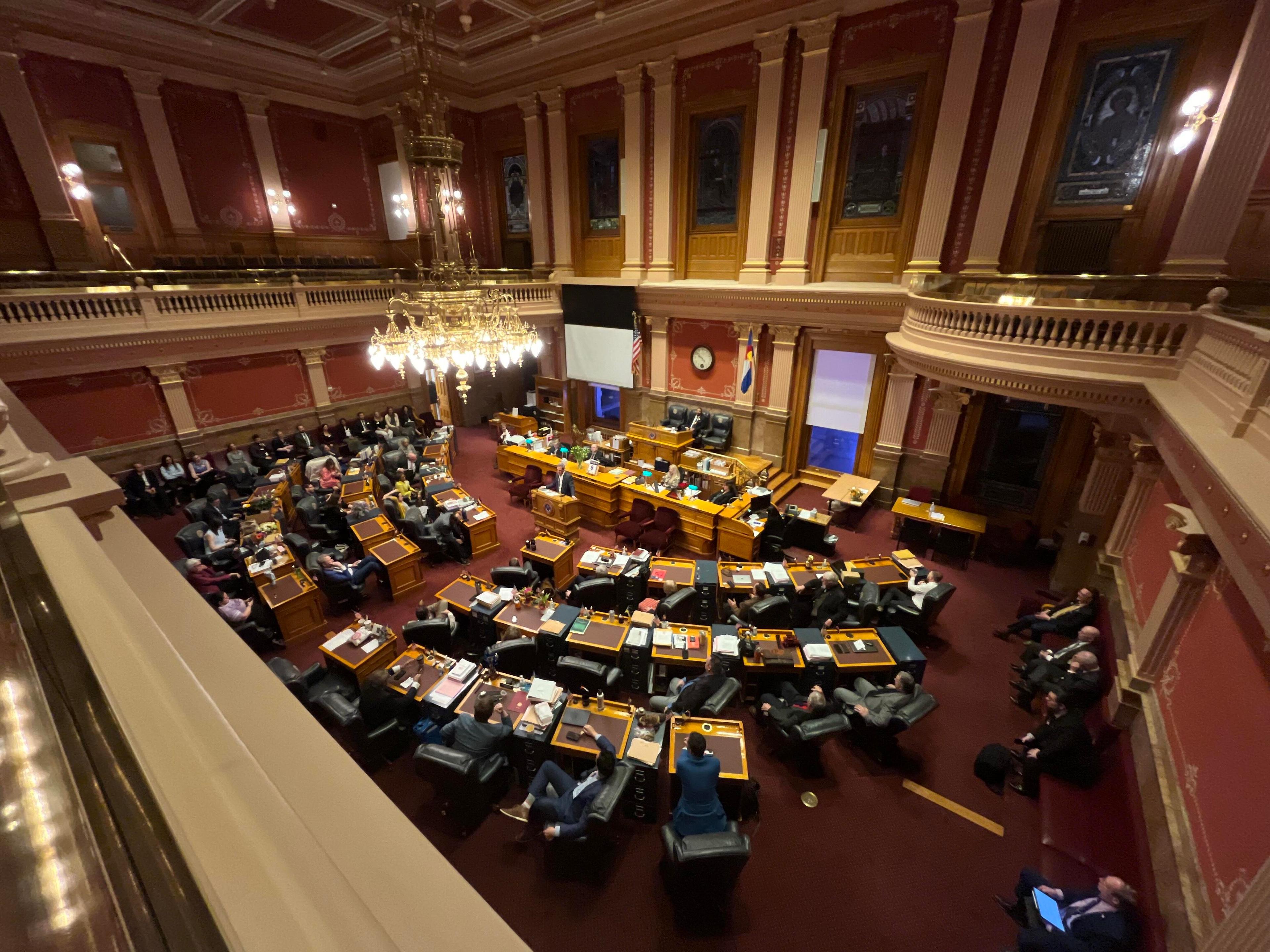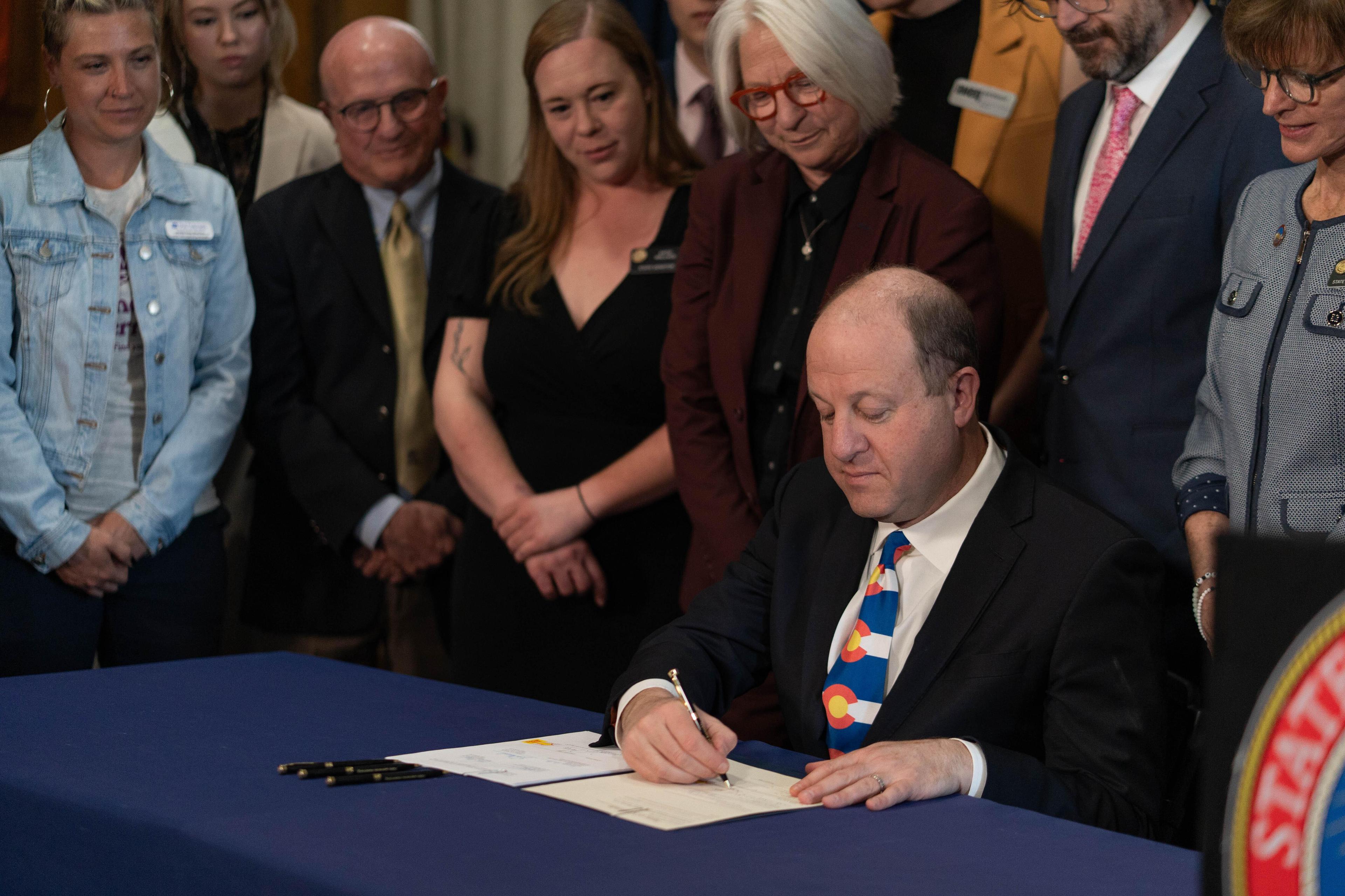Gov. Jared Polis started his Friday news conference with a quick summary of where the state stands in its response to the novel coronavirus — including new executive actions — before he got down to brass tacks on what will be done to mitigate the pandemic’s economic impact.
For Coloradans looking to support restaurants whose dining rooms have been shut down to bolster social distancing, Polis had a sliver of good news.
“As we go through this process we want to make sure that our small businesses can support themselves,” he said. To that end, the governor said they suspend restrictions and will temporarily allow restaurants to sell alcohol for takeout or delivery.
Polis also said he hoped to avoid the need to issue a shelter-in-place order requiring residents to stay at home by getting most Coloradans to voluntarily to comply with advice guarding against congregating in large groups.
The governor noted the effect of social distancing and closures on small businesses — again acknowledging that it will get worse before it gets better — and announced an emergency economic council that will focus on stabilization, brainstorming and advising his administration. Former Denver Mayor, and current private sector investor, Federico Peña will lead the advisory council.
Peña was effusive in his praise of Polis’ leadership in response to the public health crisis and frank in his assessment of how much work it will take to get through it.
“This is a global economic challenge, the likes of which I haven’t seen in my lifetime,” he said.
The advisory council is going to focus on both employees and employers, especially small businesses with an emphasis on short term and long term strategies. Peña noted that restauranteurs are challenged and pointed to Polis’ move to allow alcohol sales as an example of a short term fix. In terms of what other sectors are seeing, he said that Colorado farmers are worried about the value of the U.S. dollar, as well as the export market.
Peña said that speed was of the essence for the state to act to ensure a strong recovery post-crisis. The council is intended to provide advice and actionable ideas to the administration.
“We want to demonstrate confidence to the broader economic players in the state,” Peña said.
As unemployment claims spike in the wake of public health orders and social distancing. Gov. Polis said that the state was working to increase the capacity of the unemployment system to handle more simultaneous claims. Right now, Coloradans have had trouble applying for unemployment as the online portal has been swamped during normal working hours.
“We’re working rapidly on increasing the number of simultaneous transactions that can occur,” Polis said.
They’re also trying to speed up delivery of benefits, which can take four to six weeks even in normal circumstances.
Unemployment insurance can partially replace workers' wages when they lose their jobs, but it’s only available to a limited set of people. For example, it excludes independent contractors and gig workers, and it can be limited for people who are newly employed.
The surge of unemployment and the unprecedented outbreak has raised tough questions for both workers and employers.
“Our volume has been going crazy. We’re in completely uncharted territory,” said employment attorney Bryan Kuhn in a separate interview.
In his news conference, the governor also pointed out that in these times, supply chain and grocery employers are hiring in order to meet demand.
Polis wants Colorado’s congressional delegation to “think big” when they vote and advocate for support from the federal government. He ticked off ideas like tax relief, child care changes, unemployment insurance efficiencies and potential stimulus payments to Americans.
The governor said they will soon release an executive order that will expand on federal moves to protect against residential or commercial foreclosures during the public health emergency. Polis also called on financial institutions to provide flexibility on loans. A request was made of landlords to waive late fees and to refrain from removing tenants from their homes and for utilities to provide protection as well.








